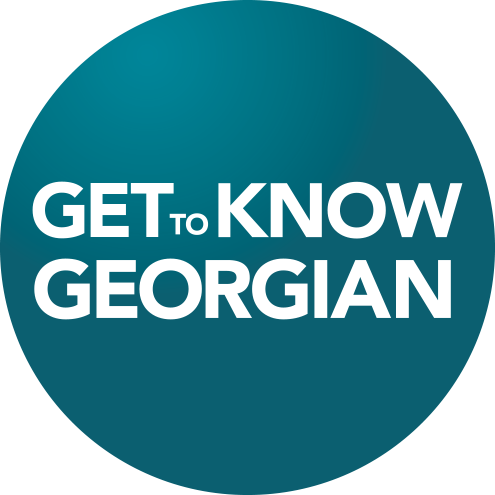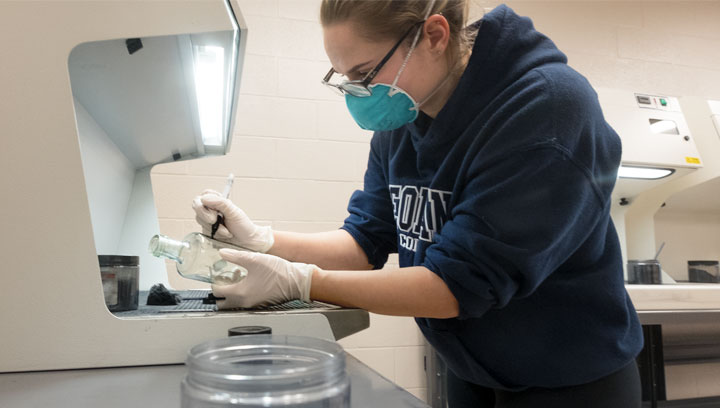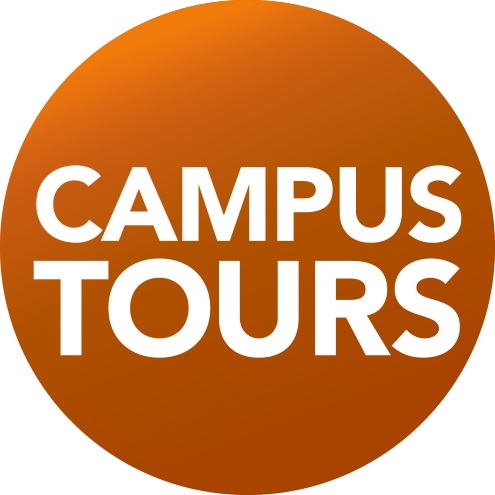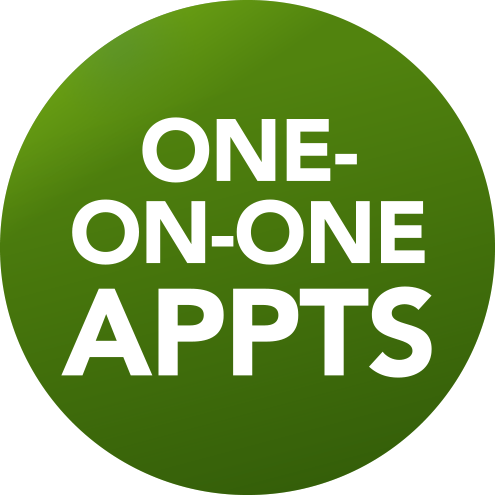
Support people with a career in community crisis and suicide response
Community Crisis and Suicide Response Ontario College Graduate Certificate program
Lead with compassion and care. Support individuals and communities with trauma-informed responses to community crisis and suicide.
Part-time
Program information
Program description
Canada’s first post-secondary program in community safety and wellbeing that specializes in community crisis and suicide response.
Drawing on innovative and emerging community-led crisis models and public health strategies, students explore community-led approaches that elevate the standard of care in community crisis and suicide response.
Using a trauma-informed, decolonial, and anti-oppressive framework, students gain knowledge and skills required to assess, intervene, and support individuals, families, and communities in crisis. Students are informed on culturally responsive approaches from authentic voices, particularly those from Black, racialized, Indigenous and 2SLGBTQIA+ communities.
Students apply evidence-based strategies, and utilize experiential learning, including use of simulation to develop a comprehensive understanding of the complexities of community crisis and suicide response and how to navigate the mental health, addiction, and justice systems.
Intake information
| Start date | Campus |
|---|---|
| Fall 2026 | Barrie |
Tuition and fees
- Visit our tuition and fees page for detailed information on the cost to attend Georgian.
- Review additional program-specific fees for this program.
- You can afford this! Explore OSAP as well as awards, scholarships and bursaries to help you pay your way to graduation.
Work-integrated learning
- This program includes a field placement component where you’ll gain hands-on experience in a setting relevant to your program.
- Learn about types of work-integrated learning at Georgian.
What are the admission requirements for the Community Crisis and Suicide Response program?
Community Crisis and Suicide Response admission requirements
- Ontario College Diploma, Ontario College Advanced Diploma, Degree or equivalent in health, education, human services or community safety related fields.
Minimum GPA of 70% in the above credentials is recommended.
Applicants who are lacking the above requirements may be considered upon submission of a resume, letter of intent and portfolio showing evidence of experience in a related field with a minimum of 5 years or 9000 hours of crisis and suicide response experience.
Additional information
Applicants will be required to provide a clear CSC/VSC prior to proceeding to field placement. Applicants may be asked to provide community agencies with proof of completion of Standard First Aid and CPR Level C certification in some circumstances to proceed with field placement. Students are required to review agency requirements provided by the field placement office. Proof of completion of the Ontario Ministry of Labour Health and Safety Awareness training must also be provided before proceeding on field placement.
Criminal Reference/Vulnerable Sector Check
Placement agencies require an up-to-date clear criminal reference check and vulnerable sector check prior to going out on placement. Students should obtain their criminal reference three months prior to placement; checks conducted earlier may not be considered current. As some jurisdictions require longer lead-time for processing, please check with the program coordinator to ensure you allow for sufficient turn-around time. It is the student’s responsibility to provide the completed document prior to placement start.
NOTE: A record of criminal offences, for which a pardon has not been granted, may prevent students from completing their placements, thereby affecting their ability to graduate.
Bring Your Own Device (BYOD) requirements
What career paths can I take in human services?
Your Community Crisis and Suicide Response graduate certificate gives you many career opportunities
Graduates from this program are prepared to support individuals and communities through compassionate, trauma-informed, and culturally responsive crisis and suicide response.
Career opportunities may include roles such as community crisis and suicide specialist, crisis and suicide telephone line worker, alternative-led or 911-led mobile crisis responder, harm reduction or supervised consumption site worker, homeless and addiction recovery treatment worker, encampment or shelter worker, community safety and wellbeing practitioner, case manager or system navigator, assertive community treatment worker, rapid addiction medicine worker, forensic mental health worker, Indigenous services worker, 2SLGBTQIA+ services worker, violence prevention or intervention worker, school or campus crisis intervention worker, emergency department crisis intervention worker, victim services worker, grief and bereavement worker, hospice and end-of-life worker, situation table co-chair, justice and corrections crisis intervention worker, community crisis and suicide response trainer or educator, public health education and promotion specialist, community crisis and suicide response policy advisor, humanitarian crisis worker, program coordinator, supervisor or manager in community crisis and suicide response.
Completion of this program also provides graduates currently working in the human service, justice, community safety, education, and other health services with crucial and required skills in the areas of community crisis and suicide response.
Flex MORE. Study Community Crisis and Suicide Response part-time
What courses are included in the Community Crisis and Suicide Response program?
Course overview
17 Program Courses
1 Experiential Learning Opportunity
Program-specific courses
Semester 1 courses are listed below. For a full list of courses in the program including course descriptions, view the Community Crisis and Suicide Response program outline.
- CCSR 1000 – Mental Health and Psychopharmacology
- CCSR 1001 – Trauma-Informed Interventions for Helping Professionals and Caregivers
- CCSR 1002 – Death, Dying, and Bereavement Experiences
- CCSR 1003 – Indigenous and Decolonizing Approaches
- CCSR 1004 – Introduction to Community Safety and Public Health Approaches
- CCSR 1005 – Africentric and Afri-Indigenous Approaches
- CCSR 1006 – Introduction to Counselling and Assessment Skills
- CCSR 1007 – Trauma-Informed Interventions Across the Lifespan
- CCSR 1008 – 2SLGBTQIA+ and Queer Affirming Approaches
- CCSR 1009 – Aging and Disability Experiences for Community Crisis and Suicide Response
Your course delivery method(s)
Hybrid
This program has a hybrid delivery method. Some parts are online and other parts are delivered in person. You’ll need to come to campus for part of your program.
Please note, delivery methods are based on planning for the upcoming semester and are subject to change.
Check out our other related programs
Honours Bachelor of Counselling Psychology
Broad range of counselling theories and techniques. Promote mental health in diverse populations. Strong foundation in research and theory. Field placements to practise skills.
Addictions and Mental Health
Motivate people to change! Unique cutting-edge courses and interactive counselling labs. Be in demand by employers in many fields.
Child and Youth Care
Practise your skills in our interactive simulation labs. Cutting-edge community placements. Graduate job-ready or pursue further studies.
Police Foundations
Extraordinary learning experiences and community connections. Develop your knowledge and competitive skills for life and career success.
Frequently asked questions (FAQs) for students
Hybrid Format
This program is delivered in a hybrid format, which means learning happens both online and in person. Students will experience:
- Asynchronous learning: Students complete coursework on their own schedule, such as watching recorded lectures, reading assigned materials, and participating in online discussions.
- Synchronous learning: Students join live, scheduled online classes with their instructor and classmates.
- In-person learning: Some components, such as the simulation course in the second semester, require students to be on campus.
For all synchronous sessions, students are expected to attend and keep their camera on unless they have received prior approval from their instructor. These sessions are an important part of the learning experience.
Students are required to attend in person for the in-person simulation course in Semester 2 (Winter). This course includes four full days of in-person simulation, usually scheduled over two consecutive weekends in the latter half of the course. An additional day may be scheduled if extra testing or assessment is required.
Throughout the program, simulation is built into many clinical courses to help students develop practical skills. Simulations may include using online technology to interact with peers synchronously, role-playing, engaging with content through videos, and participating in immersive simulation spaces. In addition to these virtual and classroom-based components, simulation is also delivered in person at the end of the program. This serves as an exit simulation including a variety of scenarios. Successful completion is required to transition to either placement or, if approved, the capstone project.
Scenarios are based on real-world community crisis and suicide response situations and may include interactions with simulated clients, role-playing, virtual components, and in-person immersive simulations. Scenarios increase in complexity as the program progresses.
Some synchronous sessions may be recorded for educational purposes, but live attendance and participation are required. Recordings are not a substitute for attending class.
Students are expected to have reliable internet access, a computer with a working camera and microphone, and access to required learning platforms such as Brightspace and Microsoft Teams. Headphones or a headset are strongly recommended for clear audio during synchronous sessions.
Placements for this program are in-person. Students may need to travel depending on where their placement site is located. The program will make every effort to assign students to placements that are accessible and convenient, but travel or access to a vehicle may be required.
No. Students are not responsible for finding their own placement. The program will coordinate placements for all students. If students know of a community agency interested in hosting, they can share that information with the Field Placement Officer, who may explore it as a possible placement opportunity when it is appropriate.
Yes, but only under specific conditions. The capstone project is an alternative to clinical placement for students who already have significant experience in the community crisis and suicide response field. To pursue this option, students must apply through a formal process that will be explained at the start of the program.
No. Placements are unpaid. Students gain applied experience under the supervision of qualified professionals.
PLAR (Prior Learning Assessment and Recognition)
The placement cannot be replaced through PLAR. Even if students have done similar work or completed a previous placement elsewhere, they must still complete the placement for this program unless they are approved for the capstone project.
Emotional Readiness and Support
This program involves working with themes of crisis, suicide, and trauma in both coursework, simulations and applied settings. This content can be emotionally heavy. Students are encouraged to reflect on their readiness to engage with these topics, especially if they have personal experiences related to them. It is strongly recommended that students plan for emotional support, such as counselling or peer/community resources, to help manage any impacts on their well-being.
No. Applicants are not expected to have previous professional experience. The curriculum is designed to build knowledge and skills progressively.
The Ontario College Graduate Certificate in Community Crisis and Suicide Response does not itself lead to professional registration with a regulatory body. It is recognized as a specialized program that generally supports already trained professionals in seeking specialized employment in community crisis and suicide response contexts.
This program is designed for individuals who are interested in building or enhancing their skills in community crisis and suicide response. It is well-suited to both emerging and experienced professionals who work, or aspire to work, in community crisis and suicide response, mental health, health care, social services, education, or community safety settings.
Graduates who already hold, or who pursue separately, a professional designation including but not limited to: Registered Social Worker (RSW), Registered Social Service Worker (RSSW), Registered Psychotherapist (RP), Nurse Practitioner (NP), Registered Nurse (RN), Registered Practical Nurse (RPN), Registered Midwife (RM), Certified Psychologist (C.Psych.), Certified Psychological Associate (C.Psych.Assoc.), Registered Behaviour Analyst (RBA), Registered Occupational Therapist (OT Reg. (Ont.)), Physician (MD/DO), Physician Assistant (CCPA), Advanced Emergency Medical Care Assistant (AEMCA)/Primary Care Paramedic, Advanced Care Paramedic (ACP), Ontario Certified Teacher (OCT), Registered Early Childhood Educator (RECE), Lawyer (LLB/JD), Paralegal (P1), or similar credentials may have enhanced employment opportunities in their respective fields and may be eligible for a broader range of roles.
The program may also be of interest to non-regulated professionals who work in allied fields, such as Child and Youth Care Practitioners, Recreation Therapists, Developmental Service Workers, Addiction Counsellors, Peer Support Workers, and other community-based service providers who play a critical role in community crisis and suicide response.
The program may also be of interest to individuals in public safety and service roles, including police officers, firefighters, correctional officers, and other first responders, as well as those seeking to enter the field for the first time.
Yes. Graduates may be able to apply credits toward further education where indicated. Please visit ONtransfer.ca for more information.
This is an intense program. Full-time students should dedicate approximately 35 to 40 hours per week. This includes scheduled classes, asynchronous learning, readings, assignments, and simulation preparation. Some weeks may be more intensive, especially during simulation or placement.
This program is intensive; therefore, students should carefully consider their personal and professional responsibilities to ensure they have the time and capacity to engage fully in their courses and placement. There are part-time options available, for those unable to commit to a full-time course load.
Do you have questions about Community Crisis and Suicide Response? Contact us!
Thinking about applying to Georgian?
Contact our student recruitment team to explore your study options.
Already applied to Georgian?
Connect with the Office of the Registrar for admissions-related questions.
Are you an international student?
Contact our international recruitment team to learn more about studying at Georgian.
Ways to connect

Visit us at our Get to Know Georgian event on March 3
Learn more and RSVP
Take a guided, in-person tour
of our campuses.
Book a campus tour.
Book a phone appointment
with a recruitment specialist.
Connect with a recruiter.
Join our email list for event updates, contest information and more.
Sign up for Georgian updates.







